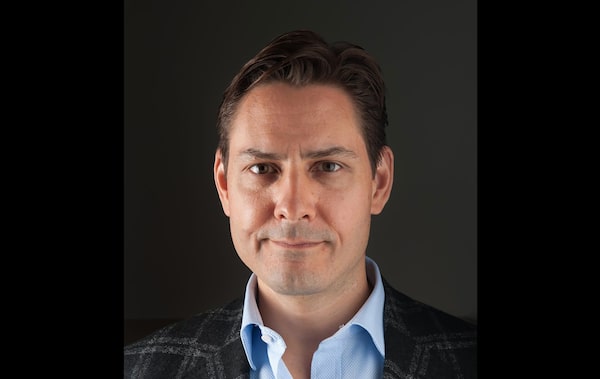
In this file photo an undated picture released on Dec. 11, 2018 in Washington by the International Crisis Group shows former Canadian diplomat Michael Kovrig.JULIE DAVID DE LOSSY/AFP/Getty Images
The Chinese government has publicly rejected an argument by Canadian officials that interrogators in Beijing have violated the protections owed Michael Kovrig, a former diplomat detained shortly after the Vancouver arrest of a Huawei executive.
“He does not enjoy diplomatic immunity. I think China’s message is very clear,” said Hua Chunying, a spokesperson for China’s Foreign Ministry, in the latest high-profile exchange of unpleasantries in a deepening dispute with Canada.
China’s conduct has “been completely in line with the requirements of international law, including the Vienna Convention,” Ms. Hua said Thursday.
Canada has accused China of violating that 1961 convention, which establishes the rights of national emissaries operating in foreign countries. Among those is a form of residual immunity, which protects the activities performed by a person as a diplomat, even after they have left their post.
Chinese interrogators have violated that protection by questioning Mr. Kovrig about his past work, the Canadian government has argued. Ottawa has summoned China’s ambassador to Canada to lodge an objection and demand that China either formally request a waiver of Mr. Kovrig’s diplomatic immunity, or deport him.
Mr. Kovrig served at the Canadian embassy in Beijing from 2014 to 2016, but has since taken a leave of absence to work as an analyst with International Crisis Group.
Prime Minister Justin Trudeau has raised alarm over China’s treatment of Mr. Kovrig, saying Beijing has chosen ”to not respect long-standing practices and principles in regards to diplomatic immunity.”
Following the arrest of Meng Wanzhou, the Huawei chief financial officer whose father founded the tech giant, Chinese state security agents detained Mr. Kovrig and Michael Spavor, an entrepreneur who arranged visits to North Korea. Both men are accused of endangering Chinese national security and are being regularly interrogated, although neither has been formally charged. They have also been denied legal representation.
Earlier this week, a Chinese court sentenced another Canadian, Robert Schellenberg, to death in a retrial for drug trafficking. In November he had been sentenced to 15 years in prison in the original trial. A lawyer for Mr. Schellenberg has said he will appeal, and the Chinese government has said its judicial authorities acted in accordance with the law.
Canadian political leadership has, however, argued that China’s “arbitrary” conduct in the wake of Ms. Meng’s arrest should be cause for global concern. Ottawa has marshalled statements of support from a series of countries – the United States, Germany, France and the United Kingdom, among them – while Mr. Trudeau and Foreign Minister Chrystia Freeland have publicly denounced Beijing.
“Our government has been energetically reaching out to our allies and explaining that the arbitrary detentions of Canadians are not just about Canada. They represent a way of behaving which is a threat to all countries,” Ms. Freeland said this week.
That strategy has sought to build on efforts in recent years by the Canadian embassy in Beijing to co-ordinate international condemnation of China, including through jointly signed letters raising alarm on human rights issues. Only by acting together, diplomats have determined, can countries avoid the individual reprisals that China has directed at places such as Norway and South Korea during spats with those countries in recent years.
But in the dispute following the arrest of Ms. Meng, the Canadian response has further inflamed Chinese anger, which it has directed at Ottawa in ways that have grown increasingly personal.
Last week, China’s ambassador to Canada, Lu Shaye, lashed out at the “Western egotism and white supremacy” that underlies what, he said, were Canadian double standards.
On Thursday, meanwhile, Ms. Hua took specific aim at Ms. Freeland.
“I think your foreign minister was too rushed, and forgot to think twice before speaking,” Ms. Hua said. “What kind of threat does China pose to Canada?”
China has demanded the immediate release of Ms. Meng, who was arrested in Vancouver in response to an extradition demand from U.S. prosecutors.
For that reason, ”it is Canada, not China, that poses a threat,” Ms. Hua said.
“We hope Canada will realize that it’s fine to be worried, but please think twice before speaking. This is the very thing that harms Canada’s reputation and image, and it is not helpful for resolving the issue.”
 Nathan VanderKlippe
Nathan VanderKlippe